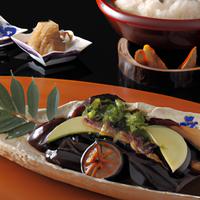
1 serving (100 grams) contains 10 calories, 0.0 grams of protein, 0.0 grams of fat, and 3.0 grams of carbohydrates.

Log this food in SnapCalorie

Nutrition Information
Calories |
23.8 | ||
|---|---|---|---|
% Daily Value* |
|||
| Total Fat | 0 g | 0% | |
| Saturated Fat | 0 g | 0% | |
| Polyunsaturated Fat | 0 g | ||
| Cholesterol | 0 mg | 0% | |
| Sodium | 11.9 mg | 0% | |
| Total Carbohydrates | 7.1 g | 2% | |
| Dietary Fiber | 4.8 g | 17% | |
| Sugars | 0 g | ||
| protein | 0 g | 0% | |
| Vitamin D | 0 mcg | 0% | |
| Calcium | 35.7 mg | 2% | |
| Iron | 0.5 mg | 2% | |
| Potassium | 23.8 mg | 0% | |
* Percent Daily Values are based on a 2,000 calorie diet. Your daily values may be higher or lower depending on your calorie needs.
Food Attributes
Source of Calories
About Shiratake
Shiratake, often referred to as shirataki noodles, are translucent, gelatinous noodles made from the konjac yam, a plant native to Japan and other parts of East Asia. These noodles are a staple in traditional Japanese cuisine but have gained global popularity for their unique nutritional profile. Shiratake is extremely low in calories and carbohydrates, making it a favored choice for those following low-carb, keto, or calorie-conscious diets. Rich in glucomannan, a soluble fiber from the konjac root, shiratake noodles may support digestion and promote a feeling of fullness. They are naturally gluten-free, sugar-free, and vegan-friendly, fitting a variety of dietary needs. However, their nutritional content beyond fiber is minimal, as they are virtually devoid of protein, fat, and essential vitamins. They are often used in soups, stir-fries, or as a pasta substitute, soaking up the flavors of accompanying ingredients for a satisfying, guilt-free meal option.



